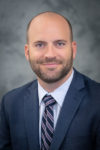
Civic Business Journal sat down with Matthew Silver, founding part of Silver & Wright to learn more about his practice areas and the impact he has made in the field.
As a founding partner at Silver & Wright, what are your practice areas?
My practice areas include code enforcement, receiverships, land use, police services, and zoning and planning laws. All of these areas are linked with improving community standards and enforcing local codes and state laws that are applicable to local codes. I help cities address nuisances and reduce crime.
Q: What led you to this field?
I am a strong believer in the good things that local government and communities can do. I have a particular appreciation for local government, what it can accomplish, and the direct impact it can have. I took my first job doing code enforcement work at a municipal law firm because it gave me access to trial experience, the opportunity to help communities directly, and other benefits at an early level.
Q: How did the award that you received for heroism impact your choice of career?
It was a pivotal moment in my life. I was driving down Pacific Coast Highway near some wetlands at high tide. There was an SUV that had crashed into the wetlands about 75 yards out.
Without even thinking about it, I dove into that saltwater and swam as fast as I could out to the car.
I went to the driver’s side window first. It was down, but there wasn’t anybody in the driver’s seat, I’m coming up for air, and I’m yelling to the crowd “Where is he? Where is he?” and someone yelled, “He’s under the car.” I didn’t have time to process that; I was desperately trying to find and save this person.
By then a dad and his son had jumped in the water too. We lifted the car up just enough from the side where you could touch the ground. I pulled the guy out from under the car, put my arm around him and swam back to shore. By then a lifeguard from the beach across the street had run over and performed CPR, but unfortunately the man had passed away. Apparently he had suffered a major heart attack before he crashed into the water.
It was pretty traumatic and until I knew the cause of death, I blamed myself. Apparently there is a local annual “hero award”, or something similar, and the lifeguard and I received awards from a local assemblyperson, senator, as well as the Chamber of Commerce, the county and city. A congressman even gave me an award on behalf of the United States House of Representatives. I was embarrassed to receive any award; it was the right thing to do and that’s why I did it.
And so, how does it relate to my career? It definitely reaffirmed for me in a very real way that I wanted to spend my life trying to do as much good for as many people as I possibly could. I was willing to take risks to try to help my community. And I was going to stand up, even when things were tough, to do the right thing. I work in code enforcement and housing because it’s the right thing to do. I want to be able to look at myself in the mirror at the end of the day and tell myself, I’m not doing the easiest thing, maybe not the most popular thing and there certainly are slumlords and special interest groups who oppose this work, but it is the right thing to do.
Q: Your father is a former city manager and a past president of the City Managers Department of the League of California Cities. What advice has he shared that was particularly meaningful or helpful?
He taught me that you have to put integrity and right over wrong before anything. Trying to do the right thing was very firmly planted in my character and who I am, how I do what I do, and why I do what I do.
Q: You have a leadership role within the California Association of Code Enforcement Officers (CACEO). How has that service opportunity positively impacted the firm?
It has helped me understand code enforcement’s daily challenges and needs from operational, personnel, and practical perspectives. We are responsible for keeping our clients’ code enforcement departments up to speed on legislation and case law that affects municipal code enforcement. We’re able to do that better largely because of my role representing code enforcement interests at the State level.
My volunteering for CACEO is unpaid and costs the firm lots of time and resources that many businesses would see as a loss; the firm doesn’t gain anything financial from it. However, we support CACEO because we are one of only a few firms in the State that has a particular expertise in code enforcement law. We’re able to offer unique insight on the successes and challenges other cities have faced trying different approaches to solving problems, and help educate code enforcement officers so they can ensure they comply with the law while doing their jobs. We’ve always felt that we can best support the profession as a whole by contributing volunteer time to the biggest code enforcement organization in the country. It shows our commitment to the profession and we’re proud to play a small part in helping such a noble group of people.
Q: What other competitive advantages can Silver & Wright provide to local governments and the businesses with which they partner?
The firm’s code enforcement practice is one of the most experienced and active in the State. We’ve encountered virtually every problem a public agency can face, and have navigated the civil, administrative, criminal, and appellate laws governing code enforcement. With the firm’s services, an agency gets the best and most current solutions to their issues. We’re extremely efficient and provide effective, tailored solutions to specific problems.
It is a sad fact that public agencies are frequent targets for lawsuits; they’re a big target and people think they have deep pockets. Part of what we bring to the table is risk awareness. We help cities identify problems and develop effective, efficient, and fair solutions to address those problems.
Q: If you could solve any code enforcement-related problem in the world what would it be?
Substandard housing conditions. When we talk about the state of California’s housing crisis, most people mean the cost of housing. But the equally big—if not bigger—housing crisis we face is the lack of quality housing. The living conditions for millions of Californians are unacceptable: kids covered in bed bug bites, rooms completely covered in mold, pregnant women sleeping under staircases, elderly people in horrible hoarding conditions. This is a problem all over the State, but especially in under-served communities already struggling with a variety of other issues. I believe living in safe, healthy and dignified housing is the fundamental bedrock of success for every community in our State, and several studies have confirmed this. If I could wave a magic wand or spend the rest of my life continuing to help people live in safe, dignified, healthy housing, I would happily do it.
Cities sometimes feel disempowered to help. Our expertise in receiverships offers a solution for substandard housing issues when property owners simply won’t comply after notices and opportunities to do so. We can oversee a transparent, fair, and comprehensive process that helps cities to do the right thing with the court’s involvement.
Q: What changes or developments do you predict in the field?
Changing state housing laws soon will require cities to allow people to live in accessory dwelling units, such as converted garages; code enforcement will be charged with making sure that the new living spaces comply fully with building codes and housing codes, as well as other municipal codes such as parking standards, zoning issues, and occupancy issues. Regulating short-term rentals while maintaining a community’s character and values, addressing unlawful camping on public property, and developing and enforcing rules related to the nascent cannabis industry also are big issues.
Q: How is S&W uniquely positioned to help address some of those issues?
There’s simply no substitute for experience. Whatever the issue is, chances are we’ve dealt with it, probably multiple times, and learned how to do so effectively from a practical perspective. We started this firm because we wanted to dedicate ourselves exclusively to doing the best possible job and providing the best possible service in the area of code enforcement.
Q: How does your relationship with your firm teammates differentiate you in the market?
We have a very clear perspective on our mission: To help cities protect and improve their communities. There is no ambiguity about this. Our goal is focused on protecting the community. That puts a lot of pressure on us to make sure that we are representing cities in the best way possible. Not all firms are interested, from top to bottom, in doing such a thing. Some may have a “public interest” department, but this is our firm from top to bottom. Amazingly, there are special interest groups out there that oppose safe and healthy communities and will go to any length to undermine this mission.


